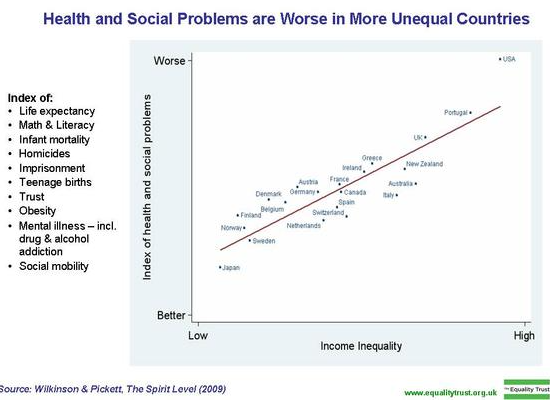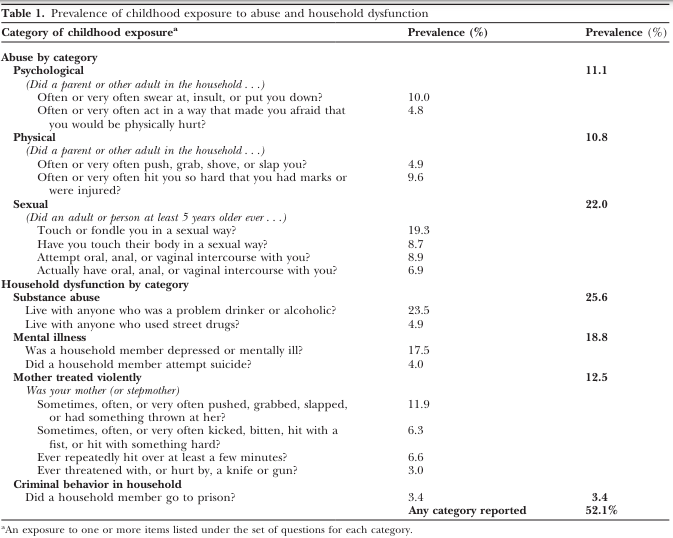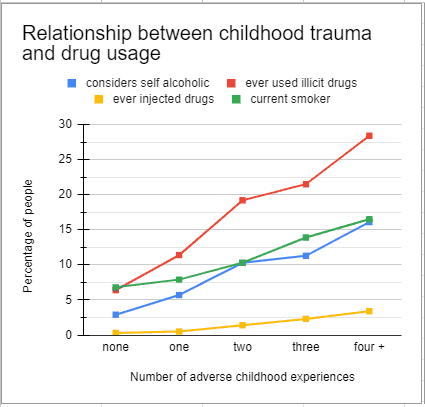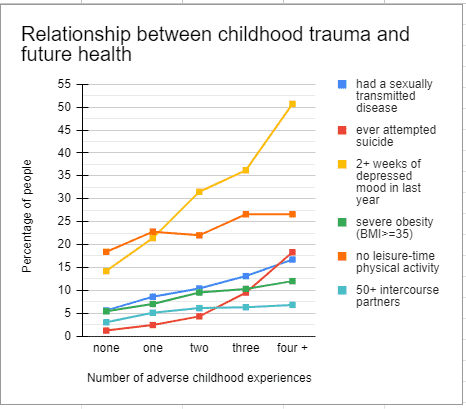This article is based on the book Lost Connections by Johann Hari. He identifies 7 things to work on to improve depression and anxiety:
- Meaningful work take me to this page
- Connection with other people
- Meaningful values
- Status and respect
- A hopeful or secure future
- Spending time in nature
- Overcoming childhood trauma
Meaningful work
According to a Gallup survey from 2011-2012, the following is the breakdown on engagement at work:
• 13% are engaged (committed to their jobs and likely to be making positive contributions)
• 63% are not engaged (lack motivation and are less likely to invest discretionary effort)
• 24% are actively disengaged (unhappy & unproductive at work & liable to spread negativity to coworkers)(p.64)
Social scientist Michael Marmot explained that it’s not the work that makes people unwell. It’s:
• Feeling controlled – feeling like a meaningless cog in the system
• Imbalance between effort & reward (feeling like you won’t get noticed regardless of how hard you work)
• Feeling like a low-status person – due to workplace hierarchies
(p. 207)
In the 1970’s Marmot carried out research on British civil servants. He found that people at the top were four times less likely to have a heart attack than those at the bottom. Also, as position rose, step by step, the chances of developing depression fell (p.67)
There was an experiment done in a Canadian town called Dauphin. The government decided to give residents a basic guaranteed income. This is basically a payment to each person with nothing expected in return. Enough money which everyone can survive on without living extravagantly. The results showed a 9 percent decrease in people who had to be hospitalised due to mental health disorders (p.249)
Dutch economic historian Rutger Bregman says most people woudn’t want to just sit around being lazy if they got this basic income. He advises that about “99 percent of people”, he asks about it tell him they would try to do something ambitious and useful. Bregman believes a basic guaranteed income would empower people as they could refuse to work in jobs that are very stressful or degrading. These employers would then be forced to make the unappealing jobs better in order to attract employees. It will give people a chance to pursue work that is meaningful to them (p.251)
Connection with other people
An experiment by neuroscience researcher John Cacioppo found that becoming acutely lonely was as stressful as experiencing a physical attack (p. 74)
A study was done to see how lonely the Hutterites are (a community like the Amish community). If someone is lonely they will experience more “micro-awakenings”. These are moments you won’t recall whereby you wake up briefly. It’s suggested the best explanation as to why these awakenings happen is because early humans weren’t safe if they slept away from the tribe. So if you’re lonely your brain won’t let you go into full sleep mode. According to Cacioppo, this community had barely any awakenings and they showed the lowest level of loneliness that he’d seen anywhere in the world (p. 78)
Scientist Lisa Berkman followed both isolated and connected people over nine years. She found that isolated people were two to three times more likely to die during that period (p. 75)
Hari discusses how our four walls which are considered home doesn’t meet our needs to be part of a bigger tribe. (p. 81)
A 2004 study showed the most common number of friends an American has is none (p.79)
If you want to make yourself happy, how would you go about doing it? Take a second to think about this before reading on.
Would you buy something for yourself, try achieve something or perhaps do something to build up your own ego? Hari mentions how he now tries to do something for others when he feels down. He feels this has often helped and it has worked much better than just trying to build himself up (p.183)
Social scientist Brett Ford believes “the more you think happiness is a social thing, the better off you are” (p.181)
Hari visited a doctor’s centre in East London which takes a different approach. Patients aren’t just given drugs. They can be referred to a doctor or they can get involved in one of the more than one hundred social programs that take place from there. There are options ranging from pottery to exercise classes to community volunteering (p.196) [good example given of woman depressed for seven years got into volunteer program which helped her massively]
Meaningful values
A good starting point is to understand your intrinsic and extrinsic values.
Intrinsic values are things you do because you enjoy them. Your desire to do these comes from within. For example, going swimming because you enjoy it.
Extrinsic values are things you pursue due to external motivators. For example, someone who chases promotions at work to impress others. Or buying designer labels/expensive jewelry to show how successful you are to others.
American psychologist Tim Kasser notes people have innate needs – to be valued/connected/secure, to feel we make a difference in the world, to have autonomy, to feel we’re good at something – he believes materialistic people are unhappy because they are chasing a way of life that does a bad job of meeting those needs. As an example, he points out that someone can decide on a Friday evening to stay at work or to go home to play with their kids (p.98-99)
In 1978 two Canadian social scientists did an experiment with a group of four and five year old kids. They were divided into two groups. One group saw no advertisements. The other groups saw two advertisements of a toy. They then gave the kids an two options. They could play with a mean kid who had the toy or they could play with a nice kid. If they saw the advertisement they mostly chose to play with the mean kid (the opposite to the kids who didn’t see the advertisement) (p.100)
In 2007, the government of the city São Paulo in Brazil decided to ban all outdoor advertising. This is one way of removing some of the mental pollution in our world (p.212)
Hari discusses the idea of having support groups whereby participants discuss intrinsic and extrinsic values. People may already know what’s important to them but by discussing these and bringing what’s important to them to their consciousness. [experiment done was successful see page 217]
Status and respect
Robert Sapolsky followed baboons for a long time and found there was a clear hierarchy. The highest ranking male baboon could do what he wanted (the lowest ranking baboon would get disrespected). Robert took blood samples of these and found the baboons with lower status are more stressed.
Does this relationship between having a lower status and having greater stress carry over to humans? Well, Kate Pickett and Richard Wilkinson did research into the relationship. They found the more unequal the society the more mental distress there is. Below is a graph I found online which references Pickett and Wilkinson’s book as the source.

A hopeful or secure future
Spending time in nature
Hari interviewed evolutionary biologist Isabel Behncke operating out of Oxford University who essentially studied how we as humans are the way we are, in part by studying our ancestors. She lived in the Congolese rainforest for 3 years whereby she observed Bonobos (similiar to chimpanzees) all day, every day. Having had the opportunity to observe them in their natural habitat and in captivity in a zoo she noticed a difference. Although the Bonobos could get depressed even in their natural habitat she noticed they would become noticeably more depressed in the zoo compared to their natural habitat. It led her to question if humans have become more depressed because we deprive ourselves from being in the natural landscapes our ancestors lived in. As she points out “we have been animals that move a lot longer than we have been animals that talk and convey concepts”. (p.121-128)
Overcoming childhood trauma
There was survey done (with results including the feedback of around eight thousand people) to see the relationship between adverse childhood experiences (ACE’s) and future health. The table below shows the seven categories of ACE’s that were under review:

The chances of experiencing 2+ weeks of depressed mood within the last year went from one in seven (if had none of the ACE’s) to being as likely as guessing the result of a coin flip (if experienced four or more ACE’s).


This study was predominantly focused on issues people had with others they lived with growing up. I think this could be extended further – What if you:
- were bullied in school
- had some mental health disorder which affected you
- experienced the bereavement of a loved one
- experienced some other traumatic experience
It could be worth acknowledging and becoming more self-aware of traumatic experiences to help you address current problem behaviours and live your best life going forward!